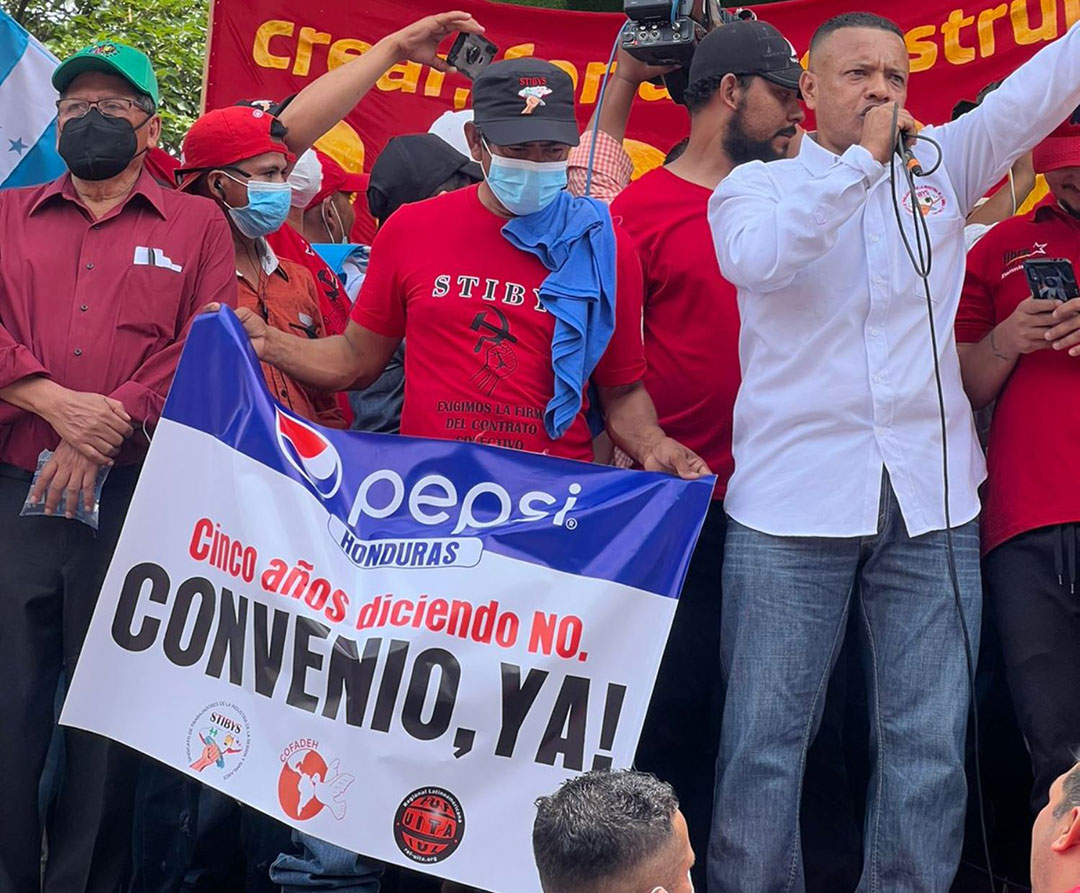With Fernando Espinales
After more than five years, contract negotiations between the Union of Beverage and Related Industry Workers (STIBYS) and the La Reyna Bottling Company (CBC-Pepsi), have come to a halt.
Giorgio Trucchi
01 | 11 | 2022

Fernando Espinales | Photo: Giorgio Trucchi
As a result of the delay tactics systematically implemented by the company and its unwillingness to negotiate certain fundamental issues like the hidden outsourcing of distribution, creating unfair competition for permanent workers by employing other distributors to cover their distribution routes, the Union has requested the closure of the current stage of negotiations.
The La Reyna Bottling Company has been continually postponing and obstructing progress throughout the current phase of negotiations.
Para el Stibys, el objetivo de la patronal es seguir debilitando a los trabajadores organizados y al Sindicato, agotando su resistencia.
“The company keeps outsourcing customer delivery services through supermarkets and other outside agents,” Fernando Espinales, spokesperson for the Union’s bargaining team, explained to La Rel.
“What it’s doing is selling its products to them at a lower cost, so then, clients will buy from them instead of from distribution trucks driven by permanent unionized employees,” added the union leader.
This policy of creating unfair competition ensures that little by little, outsourced labor increases at the expense of the stable, permanent jobs..
For Espinales, who is also vice-president of Stibys, this strategy is part of a much broader plan involving other transnational corporations.
“The La Reyna (Pepsi) Bottling Company, along with Cervecería Hondureña (AB InBev) and Embotelladora del Sula (EMSULA), have created a de facto oligopoly to outsource secure union jobs in the sales sector. It is a direct attack on organized labor and on the Union itself. It is something that we must stop,” warned Espinales.
Facing this situation, the Stibys bargaining team presented a proposal to the company.
“We proposed that the sales agents be able to sell the products at the same price as the supermarkets, and that the products be delivered through routes employing permanent employees,” the union leader explained.
The proposal was rejected by the company, which claimed it would put the company’s financial survival and the job stability of its workers at risk.
“What they are claiming is totally false and dangerous. The truth is that they don’t want to resolve the conflict and just want to infinitely extend bargaining,” Espinales said.
“We are insisting on proceeding to an expedited closure of the mediated stage of bargaining, and that an arbitration board be named, in order to arrive at a definitive conclusion. Stibys” –the vice-president concluded– “never starts a conflict, but we will end it. We are fully determined to resolve this issue. We hope that the company will understand this, and stop obstructing our efforts.”
